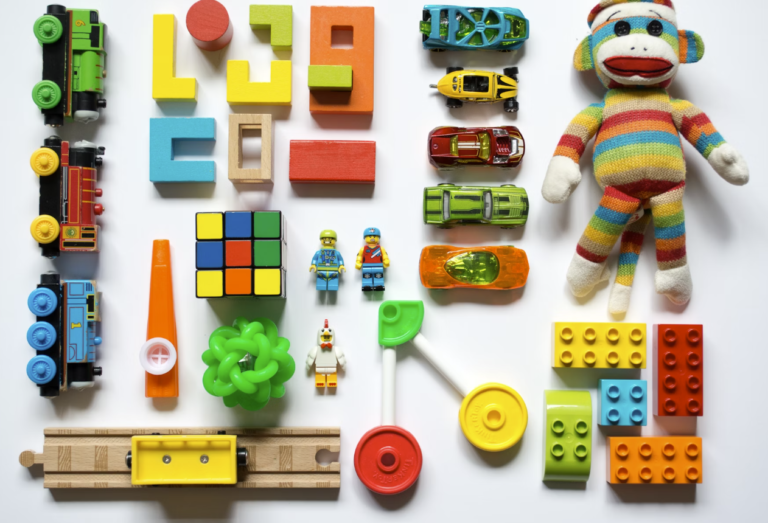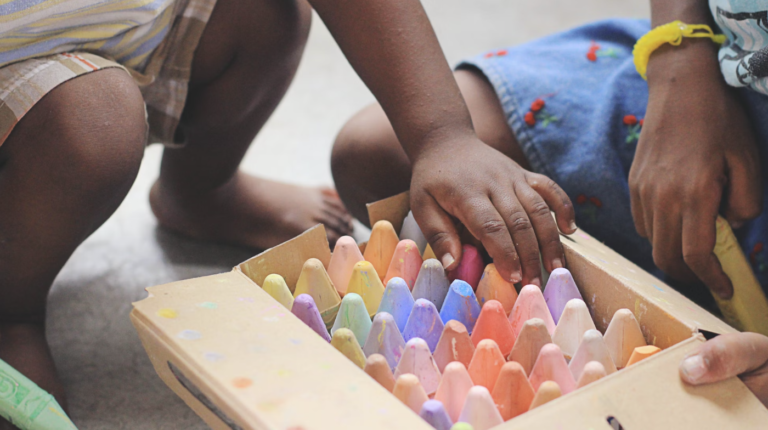Are you curious about when kids start to learn multiplication? It’s a fundamental skill that lays the foundation for more advanced math concepts. Understanding when and how children grasp multiplication can help parents and educators support their learning journey. In this article, we’ll explore the typical age range when kids begin to learn multiplication and provide some tips for helping them along the way. So, let’s dive in and uncover the fascinating world of multiplication education for kids!
Multiplication is a key mathematical operation that allows us to quickly calculate repeated additions. But at what age do children start to grasp this concept? While every child is unique, most kids begin learning multiplication between the ages of 7 and 9. This is typically when they have a solid understanding of addition and can apply that knowledge to multiplication. However, it’s important to remember that each child develops at their own pace, so some may start earlier or later than others. By understanding the general timeline, you can better support your child’s math learning and ensure they have a strong foundation in multiplication skills.
Key Takeaways
- Most kids begin learning multiplication between the ages of 7 and 9, after developing a solid understanding of addition.
- It’s important to remember that every child develops at their own pace, so some may start earlier or later than others.
- Providing support and introducing multiplication concepts through fun and engaging activities can help children develop a strong foundation in multiplication.
- Understanding multiplication is crucial for problem-solving, building a strong foundation for advanced math concepts, saving time, enhancing critical thinking skills, and applying math to real-life situations.
- Building a strong foundation in addition is essential for fully grasping the concept of multiplication.
- Applying addition skills to multiplication helps children compute numbers efficiently, enhances critical thinking skills, and strengthens number sense.
Typical age range for learning multiplication
When it comes to learning multiplication, it’s important to keep in mind that each child develops at their own pace. However, there is a typical age range in which most kids start to learn this important math skill.
Typically, children begin learning multiplication between the ages of 7 and 9. By this age, they have a solid understanding of addition and have started to grasp the concept of counting in groups or sets. This foundational knowledge sets the stage for learning multiplication, which is essentially repeated addition.
During this stage, children start to recognize patterns in numbers and develop an understanding of the commutative property of multiplication. They begin to see that multiplication allows for more efficient calculations and helps solve problems more quickly.
While 7 to 9 is the typical age range for learning multiplication, it’s important to remember that some children may start earlier or later. Every child is unique and will progress at their own pace. The key is to provide support and encourage their learning journey.
By introducing multiplication concepts through fun and engaging activities, children can develop a strong foundation in this essential math skill. Using manipulatives, such as cubes or counters, can help children visualize multiplication as they group objects into sets.
Furthermore, incorporating real-life examples and problem-solving scenarios into their learning can make multiplication more relevant and relatable. This helps children see the practical applications of multiplication in their everyday lives.
As children continue to practice and build on their multiplication skills, they will become more fluent and confident in their math abilities. It’s essential to provide ongoing support and reinforcement, as multiplication lays the groundwork for more advanced mathematical concepts down the road.
While the typical age range for learning multiplication is between 7 and 9, it’s important to remember that each child develops at their own pace. By providing support, introducing concepts in a fun and engaging way, and reinforcing learning, parents and educators can help children develop a strong foundation in multiplication skills.
Importance of understanding multiplication
Understanding multiplication is a crucial skill for children to develop as it forms the foundation for more advanced mathematical concepts. Here are a few reasons why understanding multiplication is important:
- Problem Solving: Multiplication is a fundamental skill that helps children solve real-life problems more efficiently. Whether it’s calculating the price of multiple items or determining the number of objects in a group, multiplication allows children to find solutions to everyday situations.
- Building Blocks: Multiplication is an essential building block for higher-level math topics such as division, fractions, and algebra. Without a strong understanding of multiplication, children may struggle with these concepts and have difficulty progressing in their mathematical journey.
- Time-Saving: Multiplication enables children to perform calculations quickly and accurately, saving them valuable time when solving math problems. It equips them with mental strategies to multiply numbers efficiently, making complex calculations seem more manageable.
- Critical Thinking: Multiplication requires children to think critically, analyze patterns, and make connections between numbers. It enhances their logical reasoning skills and helps them develop a deeper understanding of the relationships between quantities.
- Real-World Applications: Multiplication is used extensively in various real-world scenarios, such as measuring distances, calculating areas, and understanding data sets. By understanding multiplication, children can make sense of these applications and see the relevance of math in their everyday lives.
Understanding multiplication is crucial for children’s mathematical development. It enables them to solve problems efficiently, build a strong foundation for advanced math concepts, save time, enhance critical thinking skills, and apply math to real-life situations. Encourage your child to explore multiplication through hands-on activities, real-world examples, and ongoing practice to foster a deep understanding of this essential mathematical skill. So, keep supporting and reinforcing their learning journey, and watch them become confident and proficient in multiplication.
Building a strong foundation in addition
To truly understand multiplication, it’s essential for children to first build a strong foundation in addition. Addition lays the groundwork for multiplication by helping kids grasp the concept of combining numbers to find a sum. By mastering addition, children gain the necessary skills to fully grasp the concept of multiplying numbers.
During the early elementary years, children are introduced to basic addition facts, such as adding single-digit numbers like 1+2 or 3+4. As they progress, they begin to work with larger numbers and more complex addition problems. This gradual progression helps build their confidence and fluency in addition.
Understanding addition is important because it helps children develop important mathematical skills. Here’s why building a strong foundation in addition is crucial for learning multiplication:
1. Number Sense: Addition allows kids to develop a strong sense of numbers and their relationships. When children add numbers, they start to recognize patterns and understand the concept of quantity.
2. Problem Solving: Addition helps children understand different problem-solving strategies. By working on addition problems, children learn to analyze, think critically, and apply various techniques to find the correct answer.
3. Fluency and Speed: Knowing addition facts by heart improves fluency and speed in math. When children can quickly add numbers together, they can move on to more complex problems, including multiplication.
4. Mental Math: Addition enhances mental math skills, enabling children to perform calculations mentally without relying on paper or a calculator. This mental agility is a valuable skill that supports them throughout their math journey.
5. Building Blocks of Multiplication: Multiplication is essentially repeated addition. By mastering addition facts, children gain a solid foundation for understanding the concept of multiplication. It helps them grasp the idea that multiplying a number is the same as adding the number repeatedly.
By focusing on building a strong foundation in addition, you are setting your child up for success in learning multiplication and other math concepts. Encourage your child to practice addition regularly, provide hands-on activities, and offer real-world examples that show the practical applications of addition. With a solid understanding of addition, your child will be well-prepared to tackle the exciting world of multiplication.
Applying addition skills to multiplication
Once children have a solid understanding of addition, they can begin to apply those skills to multiplication. Multiplication builds upon addition and introduces the concept of repeated addition. By knowing how to add numbers efficiently, children can then use those skills to solve multiplication problems more effectively.
When children learn multiplication, they are essentially learning how to combine numbers repeatedly. For example, if they know that 3 + 3 = 6, they can use that knowledge to solve 3 x 2 by adding 3 to itself twice. This understanding of repeated addition is the foundation of multiplication.
Applying addition skills to multiplication not only helps children compute the sum of numbers quickly and accurately, but it also enhances their critical thinking skills. By engaging in multiplication problems, children learn to analyze patterns, identify relationships between numbers, and make logical connections. These critical thinking skills are beneficial beyond just math and can be applied in various problem-solving situations.
Moreover, mastering addition before diving into multiplication helps children develop a strong number sense. Number sense is the ability to understand numbers and their relationship to one another. By having a solid foundation in addition, children gain a better understanding of how numbers can be combined and manipulated through multiplication.
Additionally, practicing addition allows children to develop fluency and speed in math. When children can add numbers quickly and accurately, they can solve multiplication problems more efficiently. Fluency in basic arithmetic operations empowers children to perform calculations mentally, improving their mental math abilities.
Applying addition skills to multiplication is essential for children’s mathematical development. By mastering addition, children gain the necessary skills to fully grasp the concept of multiplying numbers. Understanding addition not only enhances their fluency and speed in math but also builds their critical thinking skills and number sense. Parents can support their child’s learning journey in multiplication by emphasizing a strong foundation in addition through hands-on activities, real-world examples, and ongoing practice.
Supporting your child’s math learning journey
As a parent, you play a crucial role in supporting your child’s math learning journey, especially when it comes to multiplication. By providing the right resources and opportunities, you can help your child develop a strong foundation in multiplication and enhance their overall mathematical skills. Here are some ways you can support your child’s learning:
1. Make math fun: Encourage your child to see math as an engaging and enjoyable subject. Use real-world examples to demonstrate how multiplication is used in everyday life. For example, you can have your child help with tasks that involve multiplication, such as measuring ingredients while cooking or calculating distances while driving. By connecting math to their daily experiences, you can foster a positive attitude towards learning multiplication.
2. Provide hands-on activities: Engage your child in hands-on activities that involve multiplication. Use manipulatives like blocks, counters, or even household objects to help them understand the concept of multiplication. For instance, you can ask them to arrange groups of objects and count the total. As they progress, introduce them to arrays and skip counting patterns. These concrete experiences will lay a strong foundation for their understanding of multiplication.
3. Practice regularly: Like any skill, continuous practice is essential for mastery. Incorporate regular practice sessions into your child’s routine. You can use flashcards, online games, or worksheets to practice multiplication facts. Make it a fun and interactive experience by challenging them to beat their previous records or turning it into a friendly competition. Regular practice will improve your child’s fluency and speed in multiplication, making it easier for them to tackle more complex problems.
4. Celebrate achievements: Recognize and celebrate your child’s progress in multiplication. Acknowledge their efforts and successes, no matter how small. This positive reinforcement will motivate them to continue learning and improving their skills. Consider using rewards or incentives to make the learning process even more engaging. By celebrating achievements, you can foster a growth mindset and a love for learning in your child.
Remember, supporting your child’s math learning journey requires patience and consistency. By providing a supportive learning environment and utilizing these strategies, you can help your child develop a strong foundation in multiplication and set them up for success in their mathematical journey.
Conclusion
Understanding multiplication is a crucial skill for children’s mathematical development. By building upon their knowledge of addition, children can grasp the concept of repeated addition and apply it to solve multiplication problems more effectively. Mastering addition before diving into multiplication helps children develop a strong number sense and enhances their critical thinking skills.
Practicing addition not only improves children’s mental math abilities but also enhances their fluency and speed in math. As a parent, you play a crucial role in supporting your child’s math learning journey, especially when it comes to multiplication. By providing the right resources and opportunities, such as hands-on activities and real-world examples, you can make math fun and engaging for your child.
Regular practice and ongoing support are key to helping your child develop a strong foundation in multiplication. Celebrating their achievements along the way will also motivate and encourage them to continue their mathematical journey. With a supportive learning environment and the right strategies, you can set your child up for success in their mathematical journey and help them become confident and proficient in multiplication.
Frequently Asked Questions
1. Why is multiplication important for children’s mathematical development?
Multiplication is important for children’s mathematical development because it builds upon addition and introduces the concept of repeated addition. By understanding how to add numbers efficiently, children can use those skills to solve multiplication problems more effectively. This not only helps them compute the sum of numbers quickly and accurately, but it also enhances their critical thinking skills and develops a strong number sense.
2. How does understanding addition contribute to mastering multiplication?
Understanding addition contributes to mastering multiplication by helping children develop fluency and speed in math. By practicing addition, they improve their mental math abilities, which then transfer over to multiplication. Additionally, mastering addition before diving into multiplication enhances their critical thinking skills and strengthens their overall number sense.
3. How can parents support their child’s learning journey in multiplication?
Parents can support their child’s learning journey in multiplication by emphasizing a strong foundation in addition. This can be done through hands-on activities, real-world examples, and ongoing practice. By making math fun, providing opportunities for hands-on learning, and celebrating achievements, parents can create a supportive learning environment that helps their child develop a strong foundation in multiplication.
4. What role do parents play in their child’s math learning journey?
Parents play a crucial role in their child’s math learning journey, especially when it comes to multiplication. By providing the right resources and opportunities, parents can help their child develop a strong foundation in multiplication and enhance their overall mathematical skills. Parental support includes making math fun, using real-world examples, providing hands-on activities, practicing regularly, and celebrating achievements. By utilizing these strategies, parents can create a supportive learning environment that sets their child up for success in their mathematical journey.






